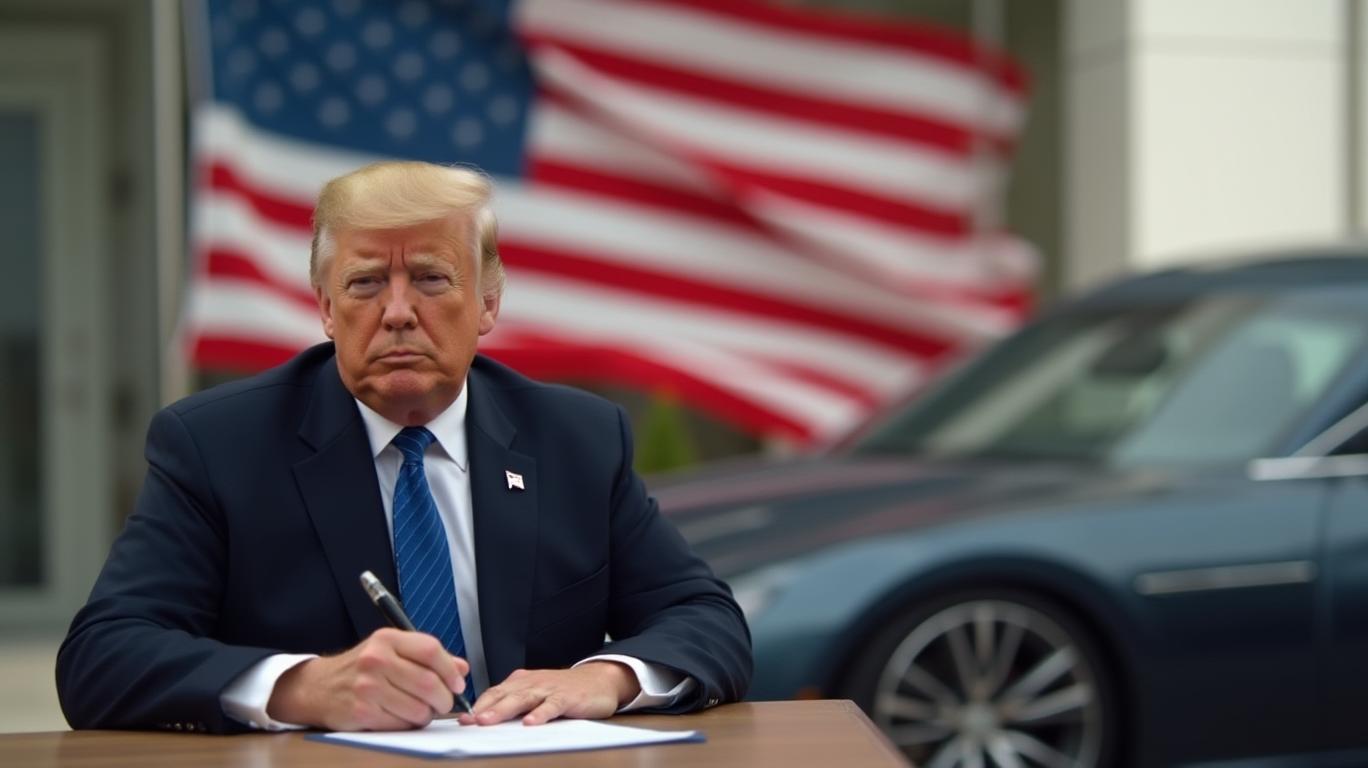Trump Imposes 25% Tariff on Non-U.S. Cars, Effective April 2
U.S. President Donald Trump has announced a 25% tariff on all non-U.S. manufactured cars, effective from April 2. This move is aimed at boosting American manufacturing by exempting cars built in the U.S. from the tariff. The tariff will be applied on top of the existing 2.5% car tariff, and parts produced in the U.S. but assembled elsewhere will be exempt. The White House confirmed that the tariffs will take effect on April 2, with collection beginning on April 3.
Trump, speaking from the Oval Office, stated that the tariff would be permanent and would apply to fully assembled cars and essential auto components. He argued that the tariffs would boost U.S. manufacturing, eliminate the complex supply chain involving the U.S., Canada, and Mexico, and help reduce U.S. debt. The tariff exempts automotive parts that comply with the U.S.-Mexico-Canada Agreement (USMCA), which allows mostly duty-free trade between the U.S. and its two largest trading partners.
Trump's decision has sparked concerns about market volatility and potential retaliation from foreign leaders. European Commission President Ursula von der Leyen described the move as “bad for businesses, worse for consumers.” Canada’s new Prime Minister, Mark Carney, criticized the U.S. trade move, vowing to defend Canadian workers and companies. Last year, Canada exported nearly C$50 billion in vehicles to the U.S., making autos a major export.
The new levies are expected to raise car prices for consumers, potentially reducing sales and causing job losses. The U.S. auto industry depends on imported parts, and experts warn that these tariffs could make cars more expensive, limit choices for consumers, and result in fewer manufacturing jobs. If the full cost of the new 25% auto tariff is passed onto consumers, the price of an imported vehicle could rise significantly, potentially contributing to overall inflation.
The auto tariffs are part of Trump’s broader plan to reshape global trade, with “reciprocal” taxes set to be imposed on April 2, matching tariffs and sales taxes charged by other countries. Trump hinted at upcoming auto tariffs in February and confirmed their implementation by Monday. He also suggested that some reciprocal tariffs might be less severe than expected, saying they could even be lower than those other countries have imposed for years.
Trump emphasized that the 25% tariff would simplify the process and help reduce U.S. debt significantly. He described the tariff as both a tax reduction and a way to improve the country’s financial balance sheet in the near future. However, the decision has sparked concerns about market volatility. Trump clarified that Elon Musk did not have a role in advising on this auto tariff policy, despite earlier comments suggesting that tariffs could be “net neutral or maybe good for TeslaTSLA--.”

Quickly understand the history and background of various well-known coins
Latest Articles
Stay ahead of the market.
Get curated U.S. market news, insights and key dates delivered to your inbox.

Comments
No comments yet